Eurovision: Iceland through to final despite Covid-enforced absence
- Published
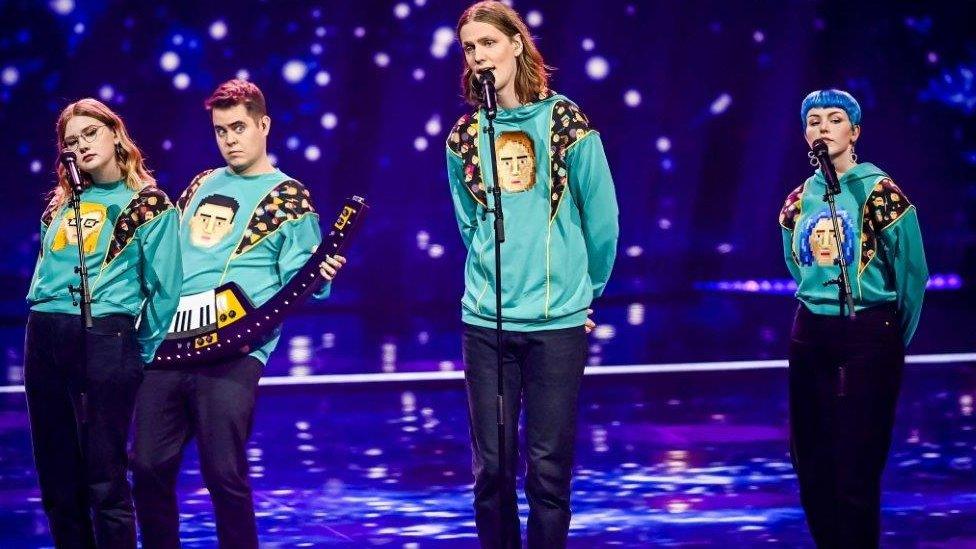
Daði og Gagnamagnið is named after Daði Freyr (centre), the band's lead singer
Iceland are through to this year's Eurovision final, despite being forced to pull out of this week's live shows following a positive coronavirus test.
Daði og Gagnamagnið did not perform live at Thursday's second semi-final in Rotterdam but were still voted through along with nine other countries.
Finland, Switzerland and Portugal were also given the green light to proceed.
But seven other countries were knocked out, among them Austria, Denmark, Estonia and Poland.
Georgia, Latvia and the Czech Republic were the other three countries eliminated from the competition.
The other countries to qualify were Albania, Bulgaria, Greece, Moldova, San Marino and Serbia.
Saturday's grand final will see 26 countries compete at Rotterdam's Ahoy Arena before an audience of 3,500 people.
Cyprus will be the first competing nation to perform, while San Marino's entrant Senhit - accompanied by US rapper Flo Rida - will perform last.
The United Kingdom's James Newman will appear ninth in the running order with his song Embers.
Albania, meanwhile, have been given the dreaded second spot - considered unlucky as no nation to perform second has ever gone on to win.
Allow YouTube content?
This article contains content provided by Google YouTube. We ask for your permission before anything is loaded, as they may be using cookies and other technologies. You may want to read Google’s cookie policy, external and privacy policy, external before accepting. To view this content choose ‘accept and continue’.
It was announced on Wednesday that Daði og Gagnamagnið would not perform live after one of its six members tested positive for coronavirus.
A rehearsal performance of their song 10 Years was shown during Thursday's semi-final, footage that will be screened again on Saturday.
Daði og Gagnamagnið were considered favourites to win last year's competition before the event was cancelled due to the global pandemic.
Italy - one of the "big five" countries given automatic qualification - are favourites to win this year, followed by France, Malta and Switzerland.
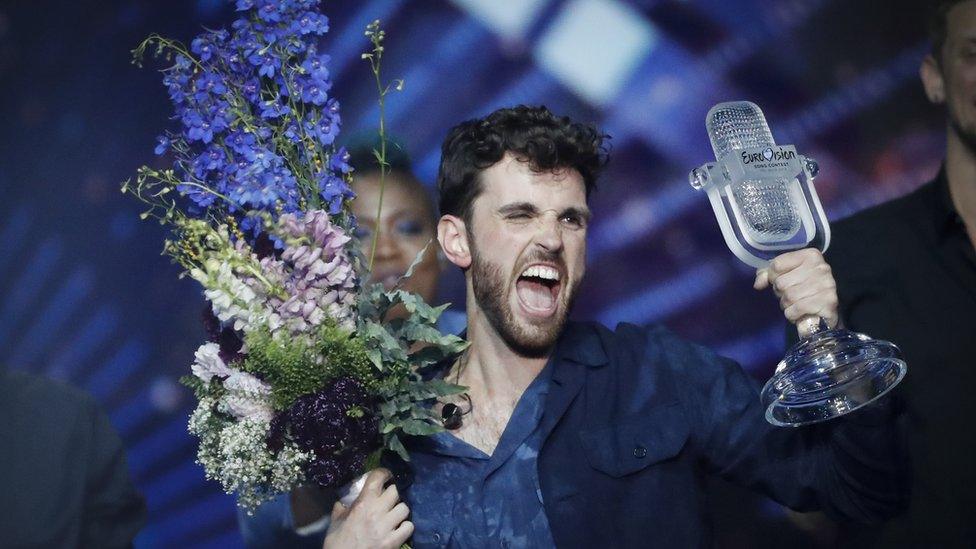
Duncan Laurence won the 2019 contest with his ballad Arcade
The Netherlands are hosting this year's contest because it won the 2019 competition in Tel Aviv.
Reigning champion Duncan Laurence cannot appear on Saturday as he too has tested positive for the coronavirus.
Laurence conveyed his disappointment on Thursday by posting a broken heart emoji on his Twitter feed, external.
Graham Norton will host BBC One's coverage of the Eurovision Grand Final, which will kick off on Saturday at 20:00 BST.

Follow us on Facebook, external, or on Twitter @BBCNewsEnts, external. If you have a story suggestion email entertainment.news@bbc.co.uk, external.
Related topics
- Published21 May 2021
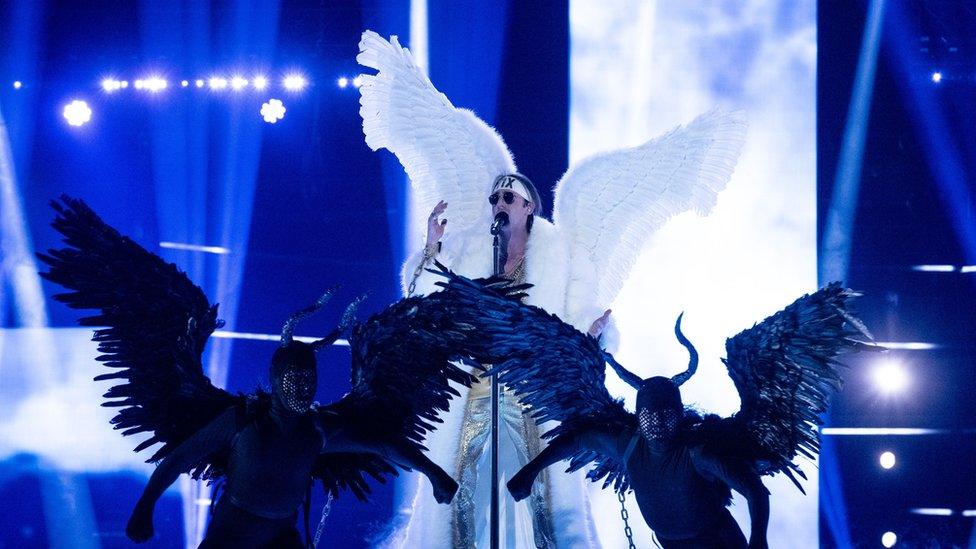
- Published19 May 2021
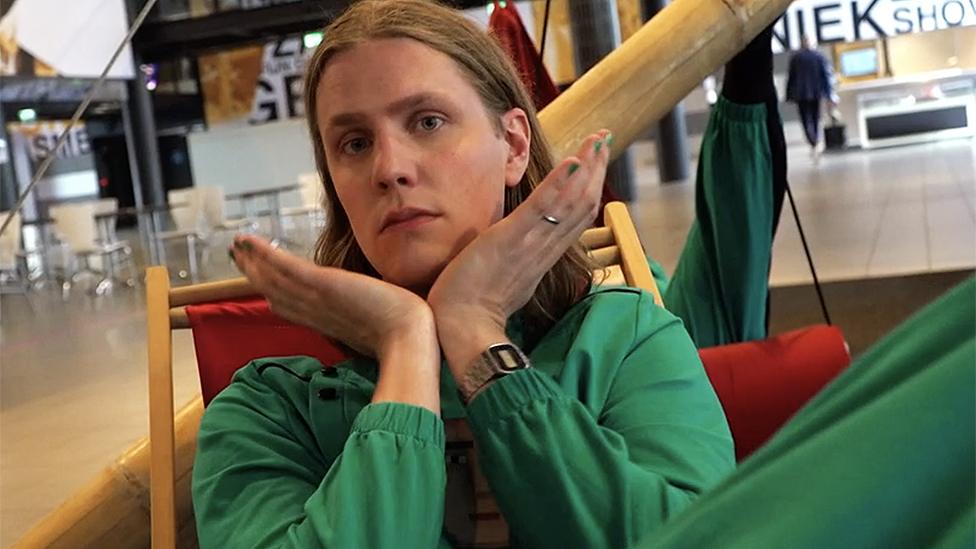
- Published19 May 2021
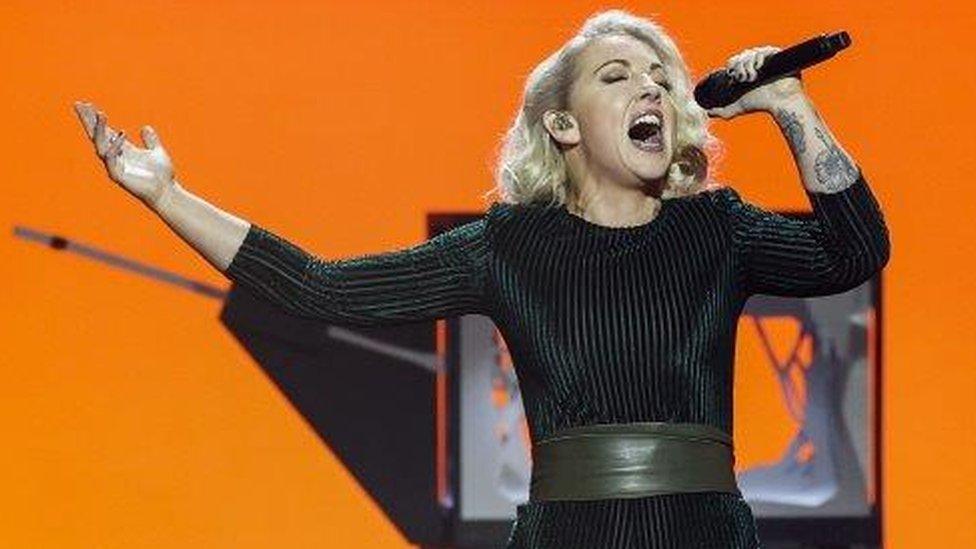
- Published18 May 2021
